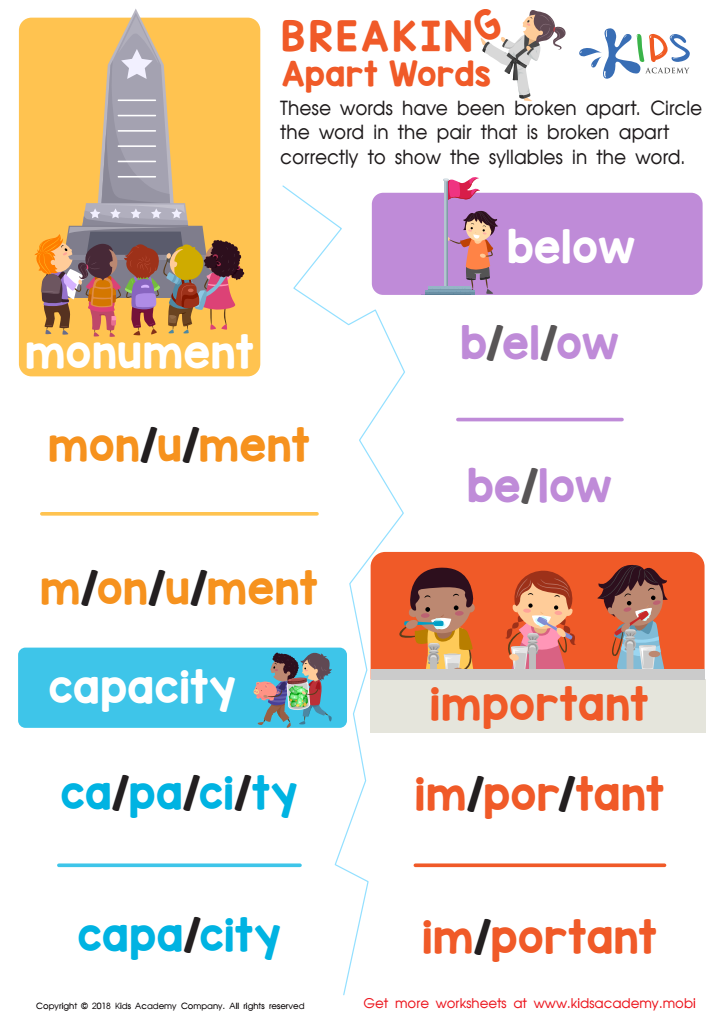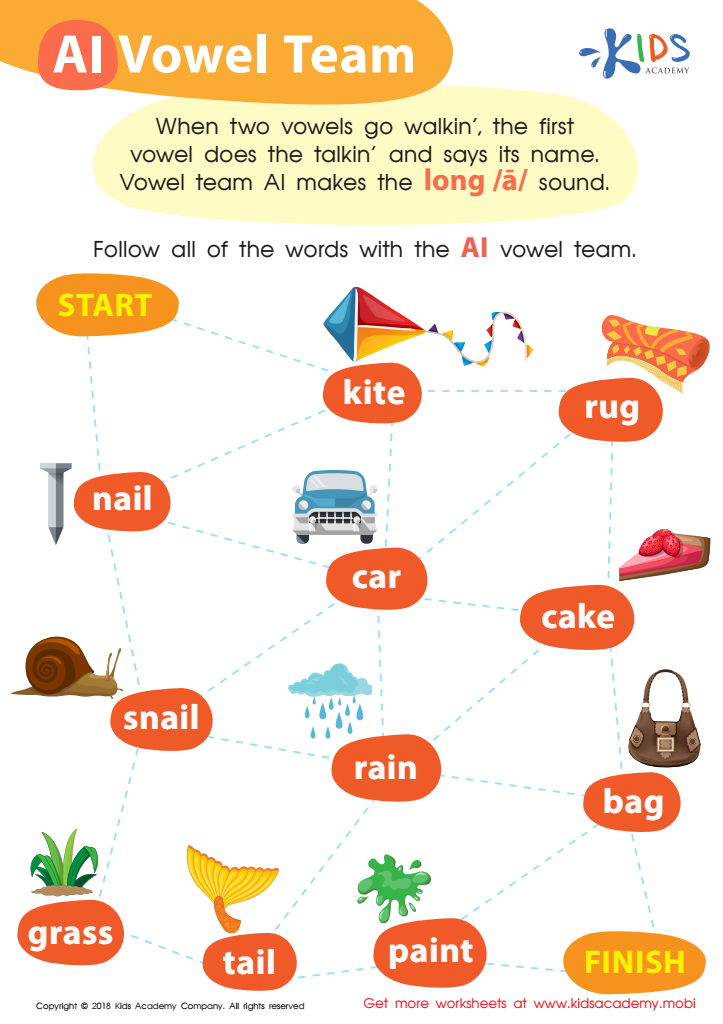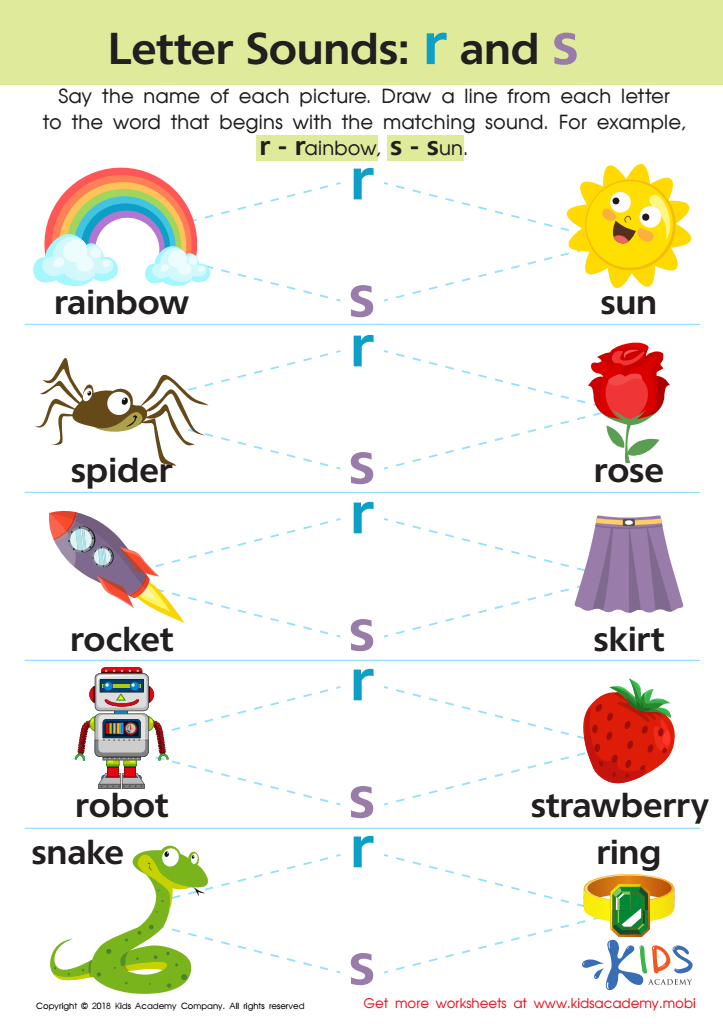Phonics skills enhancement Worksheets for Ages 3-8
3 filtered results
-
From - To
Ignite your child's reading journey with our Phonics Skills Enhancement Worksheets designed for children ages 3-8. These engaging, educational printables offer a variety of activities that focus on essential phonics skills including letter recognition, sounds, blending, and segmenting. Perfect for preschool through early elementary grades, our worksheets help young learners build a solid foundation in reading through fun and interactive exercises. Empower your child to succeed in literacy by making learning enjoyable with colorful illustrations and well-structured tasks tailored to instill confidence and skills needed for lifelong reading success. Join us at Kids Academy and make phonics mastery an exciting adventure!


Breaking Apart Words Worksheet


Reading: AI Vowel Team Worksheet


Letter R and S Sounds Worksheet
Phonics skills are the stepping stones to advanced reading and writing, making their enhancement essential for children aged 3-8. Parents and teachers should prioritize phonics because it lays the foundation for literacy, critical cognitive development at this age. Phonics teaches children the relationship between letters and sounds; this decoding ability is paramount for reading fluency, accuracy, and comprehension. Without strong phonics skills, children may struggle to recognize words, halting their reading progress and affecting their academic confidence.
Enhanced phonics instruction equips children to tackle new words independently, promoting a sense of achievement and motivating lifelong learning. This age is particularly receptive to structured phonics lessons since young brains are highly adaptable and primed for language acquisition. Engaging in phonics activities can improve spelling, listening, and speaking skills, providing a well-rounded linguistic education.
Neglecting phonics can result in reading difficulties, which may lead to broader academic and social challenges. Because early reading proficiency is linked to later academic success, parents and teachers have a shared responsibility to invest in phonics-based instruction. By prioritizing this crucial skill set, they can help children navigate the initial complexities of language learning, setting them up for educational success and lifelong literacy.
 Assign to My Students
Assign to My Students















